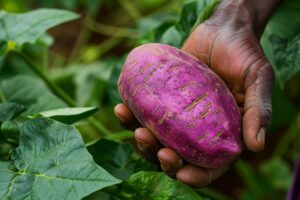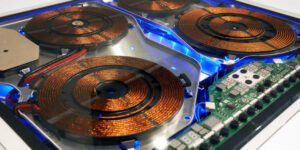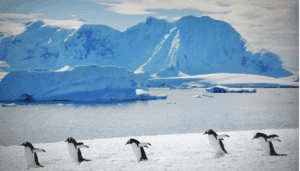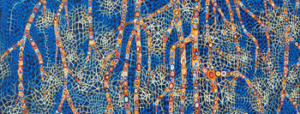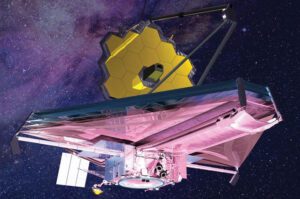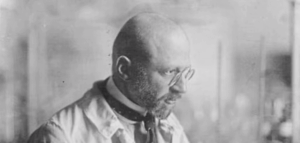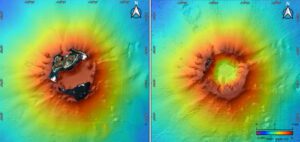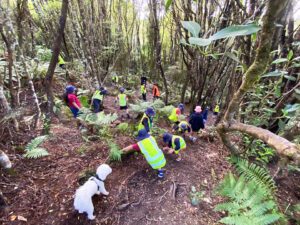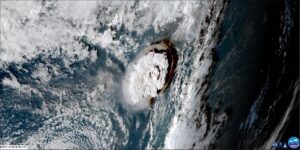This resource offers a comprehensive guide to cultivating kūmara, integrating practical gardening techniques with cultural insights. It follows the journey of a Year 4–6 class at Selwyn School in Rotorua, who, under the guidance of teacher Sue Ratcliffe, engaged in hands-on learning about kūmara cultivation. The class collaborated with local expert Te Rangikaheke Kiripatea from […]
Read MoreHow induction hobs work: The physics behind the heat
Induction cooktops can be an enigma to the uninitiated, but the physics is pretty straightforward.
Read MorePractical teaching about Antarctica: hands-on activities for science classrooms
A collection of practical activities helps students explore various aspects of Antarctica, including its climate, geography, and ecosystems. Activities include mapping exercises, graphing daylength and temperature data, studying plankton, and examining adaptations of Antarctic wildlife such as penguins and whales. The guide also shows how to access real-time data from Antarctic webcams and encourages participation […]
Read MoreBook review: Complex Systems Thinking | Rose Hipkins
Rose Hipkins’ book provides insights into the application of complex systems thinking in science education. It challenges traditional linear approaches by highlighting the dynamic interactions within systems and the importance of understanding these relationships. The book also explores the integration of indigenous knowledge systems, which emphasise interconnectedness and relationships, offering valuable perspectives for teaching complex […]
Read MoreJames Webb Space Telescope: A new era in space exploration
The James Webb Space Telescope (JWST) is revolutionising our view of the universe. Launched in December 2021, JWST observes in infrared wavelengths, allowing scientists to study the earliest galaxies, the formation of stars, and the atmospheres of distant planets. This article introduces the telescope’s design, technology, and the groundbreaking discoveries it is enabling in modern […]
Read MoreThe chemistry of Fritz Haber: From ammonia synthesis to chemical warfare
This article explores the life and work of German chemist Fritz Haber, whose innovations in ammonia synthesis revolutionised agriculture and industry. It explains how Haber developed the Haber-Bosch process to convert nitrogen from the air into ammonia, a key component for fertilisers and explosives, and discusses the broader impact of this discovery on global food […]
Read MoreTonga Eruption and Pressure Waves 2022
The Hunga Tonga–Hunga Haʻapai eruption on 15 January 2022 was one of the most powerful volcanic events in recent history, sending shockwaves around the globe. This article by science communicator Mike Stone explores how the eruption generated atmospheric pressure waves detectable thousands of kilometres away, the science behind their measurement, and what this tells us […]
Read MoreLocal curricula: Tailoring science education to community strengths
Schools in Aotearoa New Zealand are adapting the national curriculum to align with their unique communities, integrating local contexts, mātauranga Māori, and student interests to enhance engagement and learning outcomes. Case studies from Opihi College, Taita College, and Lake Brunner School illustrate project-based learning, environmental stewardship, and collaborative teaching approaches that strengthen the connection between […]
Read MoreThe 2022 Tongan eruption: Unveiling the science behind a megavolcano event
The Hunga Tonga–Hunga Haʻapai volcano erupted on 15 January 2022, sending ash and gas high into the atmosphere and generating a shockwave felt around the globe. This article explains the science behind the eruption, its environmental impacts, and how researchers study such extraordinary volcanic events.
Read MoreTeaching climate change: Engaging students in local action
Climate change is global issue about which students have marched in many countries. This current real-world topic will engage many students, so how can we not teach it? However, teachers can be hesitant to approach such a complex issue with its potential for controversy and anxiety, so how do we teach it? NZASE Science Communicator […]
Read More
